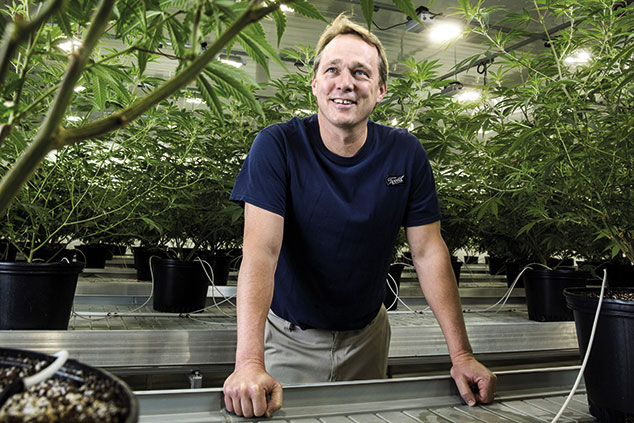
It is a global, fast-growing, and potentially hugely profitable industry. It is likely to have tens of millions of loyal customers, with strong brands that can command premium prices. Costs are relatively low. What is it? No, not any kind of app, or an AI-driven web service, nor a robot. It is legalised marijuana. It is starting to become clear that the recreational drug that burst into the mainstream in the 1960s is now on the brink of becoming a major industry, and one that will be worth a lot of money. That poses a question for the UK. Why are we missing out?
The potheads won
The gradual march of marijuana towards full legalisation, at least in North America, now looks unstoppable. From next month, it will be fully legal in Canada: you will be allowed to buy cannabis from licensed outlets, to grow up to four plants in your own home and to carry up to 30 grams around with you. In effect, it will have roughly the same status as tobacco. Dozens of US states have passed similar legislation, allowing controlled recreational use, with federal laws to create a free, if regulated, market expected quite soon. Mexico is now discussing something similar. At least on the western side of the Atlantic, the drug may soon be completely legitimate.
The result? A boom in the fast-growing category of marijuana stocks. A “dope ETF” in New York which tracks the emerging players in the business, is up 35% in the past month alone as Canadian legalisation draws closer and the size of the potential market becomes clear. Some of the world’s biggest companies are starting to sniff an opportunity. The drinks giant Constellation Brands has invested $3bn in Canadian marijuana-maker Canopy Growth. UK drinks giant Diageo is said to be seeking a partner in the sector, and its rival Molson Coors is reportedly looking for a partner to develop alcohol-free but cannabis-infused drinks.
In truth, every branded goods company in the world probably has someone looking at the opportunities – and if they haven’t, they should have. After all, there is no doubt that this is going to be a huge industry. As it is legalised across most of North America, marijuana will be worth tens of billions every year. One estimate puts the market at $9bn now, with the potential to grow to $146bn by 2025. Just like tobacco or alcohol, it is likely to be dominated by big companies and big brands. People are choosy about what vodka they drink, or what their choice of cigarette says about them, and there is no reason to think dope will be any different. The brands will need to create heritage, quality and distinctiveness quickly – and there will be plenty of companies in the UK that would be very good at that. It could be massive.
Time to spark up
The UK is traditionally very strong in branded, mildly intoxicating stimulants. Look at how well we have done in drinks and tobacco. The London market is home to massive companies such as British American Tobacco, the largest cigarette company in the world, and Diageo, which until last year was the world’s biggest drinks company (it was overtaken by China’s Kweichow Moutai). The same is true of most major European markets.
But those firms will miss out on the pot boom. Why? Because the drug is still illegal in this country, as it is across most of the continent. True, European countries can still push into the North American market and will probably do so. And, of course, investors can get on board by buying shares in the emerging players in the industry in either the United States or Canada – ironically, it will be illegal to own any dope in this country, but perfectly fine to own an ETF made up of cannabis manufacturers based in North America. But it is not quite the same as having a legal domestic market. We could be leading one of the biggest growth industries of the next decade – but that will only happen if we legalise the drug along with the rest of the world, and right now we don’t show any interest in doing so.